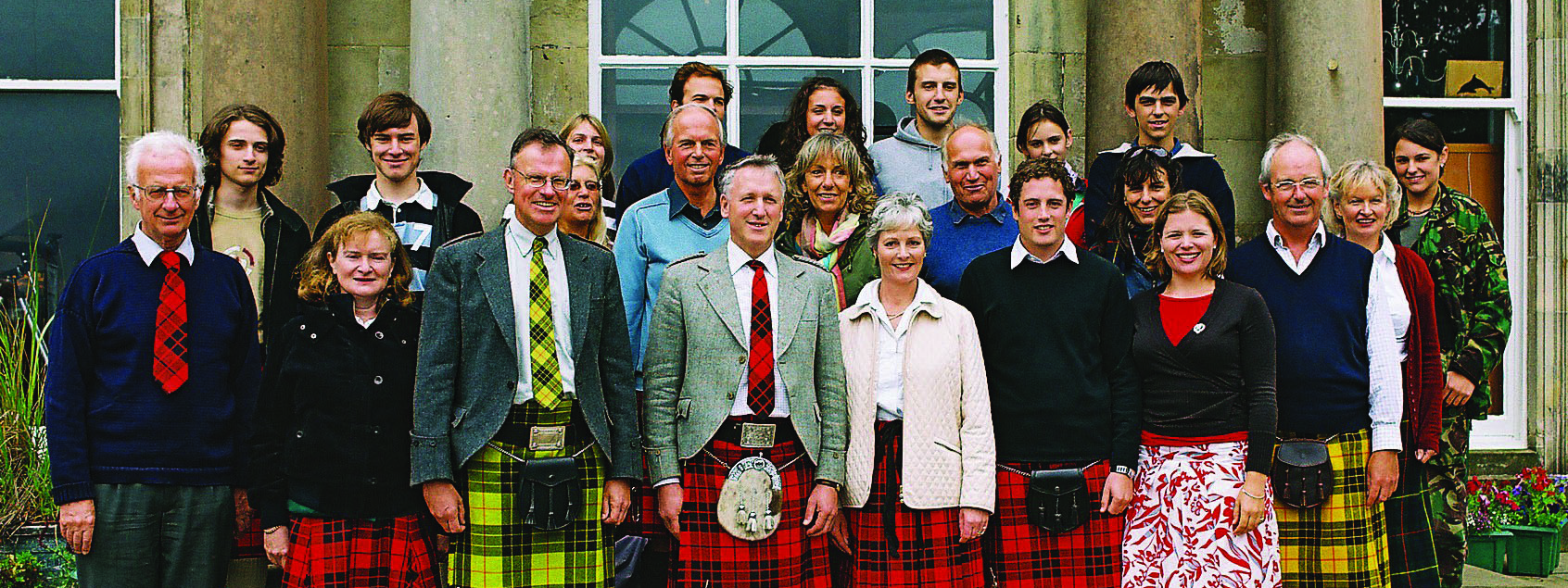Family history

The Macleod of Raasay family outside Raasay House. Chief John (front row, fourth from left) stands next to his brother, Chief Donald of the Lewes, and his wife, Elizabeth. Next to Elizabeth is their son, Alasdair, Younger of Raasay, and their daughter, Hannah
Some of the Clan MacLeod Societies across the globe have information on family history and genealogy on their own websites. Find out more through these links:
A Beginner’s Guide
Alternatively, if you’re at the very beginning of your journey, here is a short introduction on how to start researching your family history:
- Start with what you know. What information do you already have about your family history? This could include names, dates, places, or stories that have been passed down through the generations.
- Talk to your family. Talk to your parents, grandparents, aunts, uncles, and cousins. They may have information that you don’t know about.
- Write down, or otherwise record, at the time, what you are being told, and record the date on which you are recording the information as later on this information will be vital.
- Look for records. There are many different types of records that can be helpful for family history research. These include birth certificates, marriage licenses, death certificates, census records, and military records.
- Use online resources. There are many online resources that can help you with your family history research. These include websites, databases, and forums.
- Be patient. Family history research can be a long and challenging process. Don’t get discouraged if you don’t find everything you’re looking for right away. Just keep at it and eventually you’ll be able to piece together your family’s story.
Here are some additional tips:
- Organize your research. As you collect information, it’s important to keep it organized. This will make it easier to find what you’re looking for later on. There are many different ways to organize your research. You can create a family tree, a database, or even just a simple folder system.
- Keep track of your sources. It’s important to keep track of the sources you use for your research. This will help you to verify the information you find and to cite your sources properly.
- Share your findings. Once you’ve found some interesting information about your family history, share it with others. You can create a family website, write a book, or even just tell your friends and family about what you’ve learned.
If your Scottish ancestors emigrated to new lands over the last several hundred years, this website focusing on ship passenger lists and other related resources contains a wealth of information.
And if you’re a young person starting out on a school genealogy project to research your family history and make a family tree, this page contains a great set of links to useful resources:
Genealogy for Kids: Building a Family Tree
These are just some of many Links and Resources listed in that part of our Genealogy Section on www.clanmacleod.org – do check it out!
Family history research can be a rewarding and fascinating hobby. By following these tips, you can get started on your own journey of discovery.
We wish you every success!
Definitions
Genealogy: the history of the descent of families; the pedigree of a particular person or family
Pedigree: a line of ancestors; a scheme or record of ancestry; distinguished and ancient lineage
Family history: an extension to genealogy in which the life and times of the people concerned are investigated
